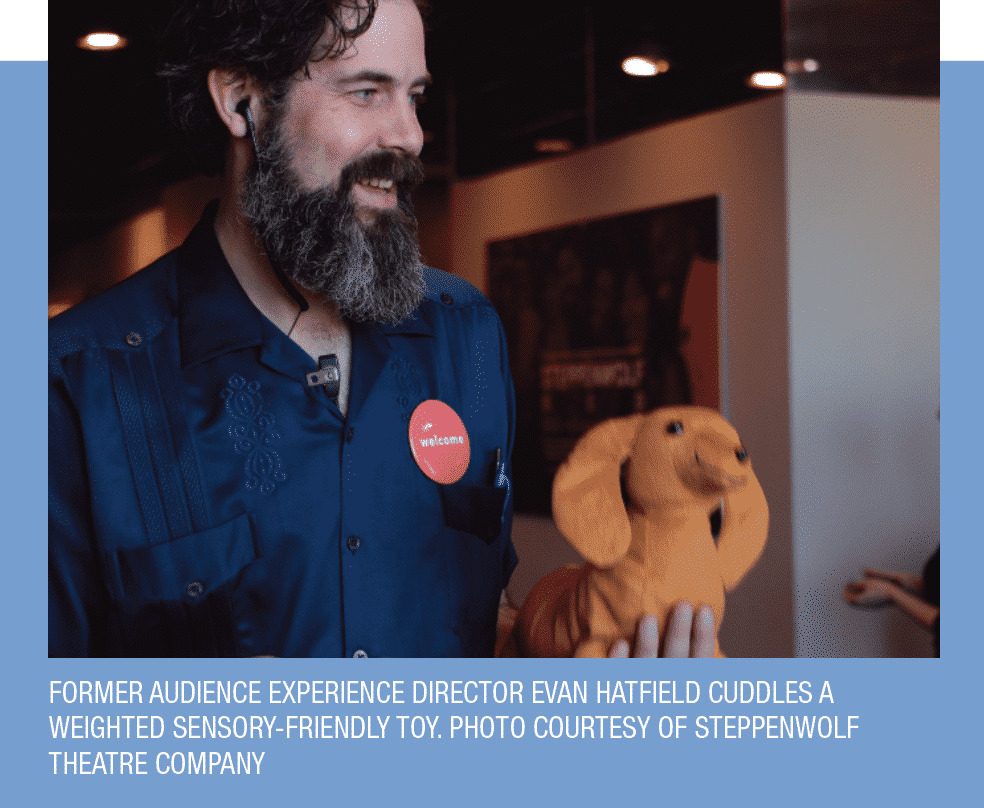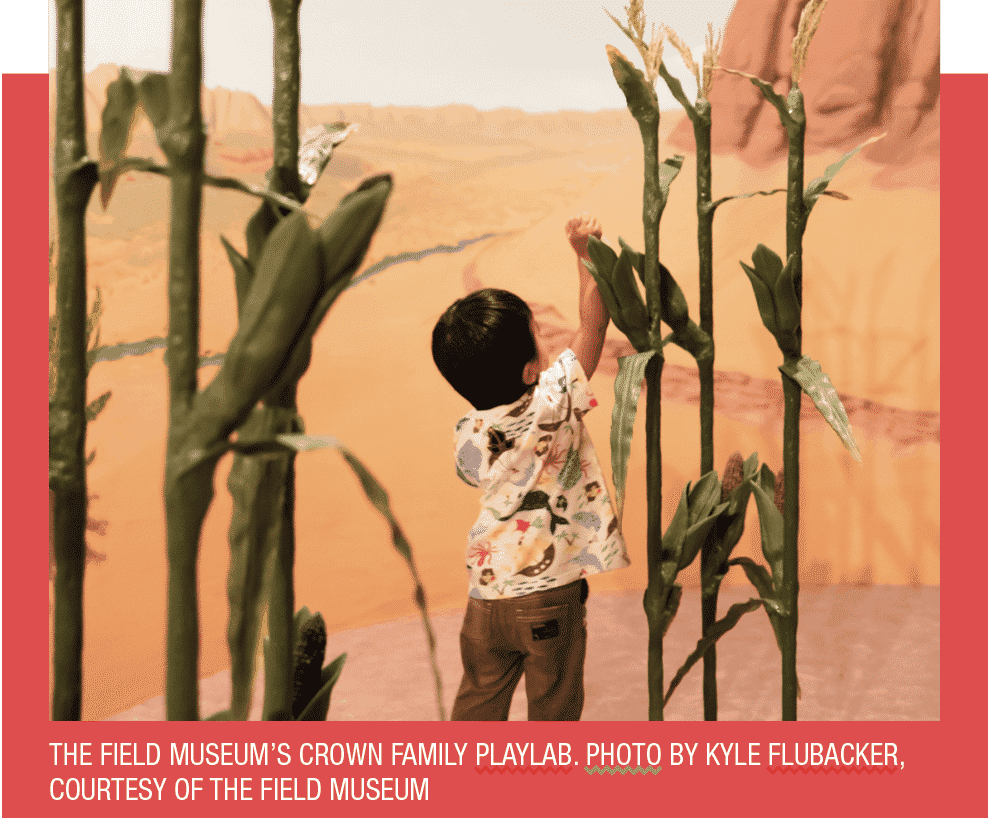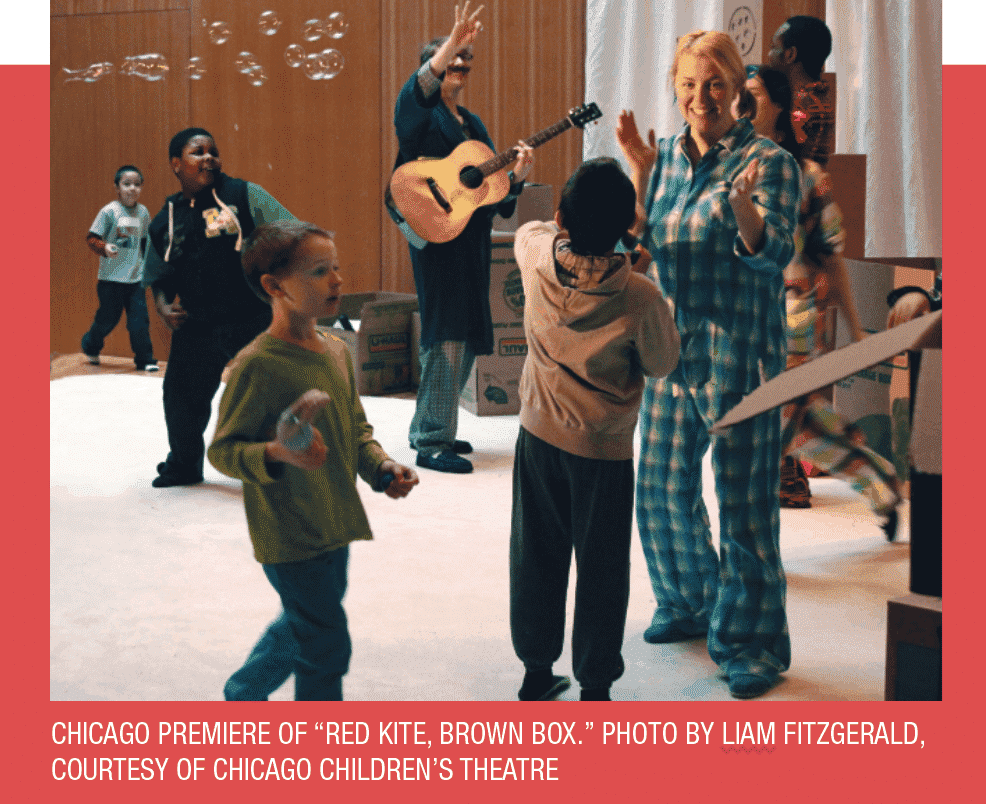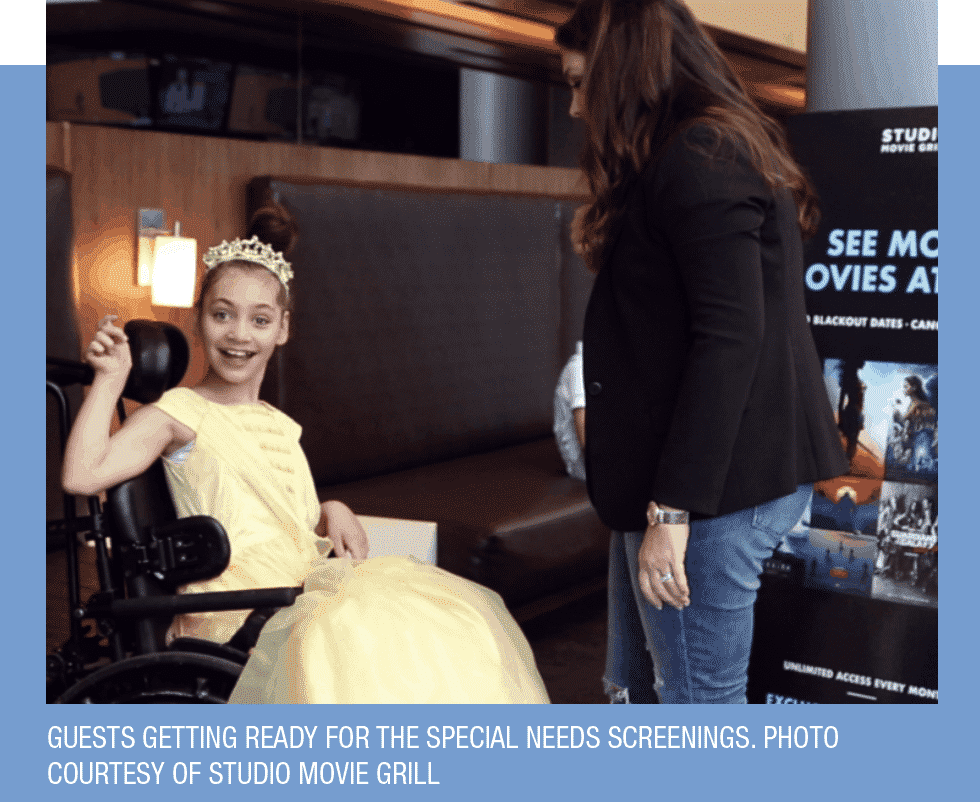Chicago theaters and museums set the scene for families with special needs
Chicago has a wealth of cultural opportunities, but for some families, those options are off the table. Families with children on the autism spectrum often opt to stay home if they feel their loved one might be disruptive at a busy museum. Others worry that their child won’t be able to handle a performance if it’s dark, too loud or if movement is restricted. Fortunately, many Chicago-area cultural organizations are reaching out to welcome families with sensory-friendly entertainment.

Steppenwolf Theatre Company aims to be accessible to everyone who comes through its doors, says Aaron Aptaker, director of audience experience at Steppenwolf. “That may mean having physical access to the space for people with mobility disabilities, or for people with sensory sensitivities it means an environment in which they feel welcomed, comfortable and safe to be themselves.”
Steppenwolf’s relaxed, sensory-friendly performances
are designed to create a welcoming experience for individuals on the autism spectrum and those with sensory sensitivities. Accommodations include adjusting sound cues, eliminating loud effects and dimming the lights instead of turning them off so theatergoers can see their neighbors
and feel comfortable if they need to move around.
“The slogan that we use in our department is just bring yourself,” says Megan Shuchman, director of education at Steppenwolf.
The setting counters the traditional perception of needing to keep quiet and stay in your seat during a show. The relaxed sensory-friendly performances — offered for Steppenwolf Young Audiences productions — take the stress out of going to the theater for those with sensory processing needs.

Timing matters
The Field Museum offers Sensory Saturdays in the Crown Family PlayLab on select Saturday mornings for an hour before the rest of the museum opens. The program is geared toward families who have children with a disability, including those on the autism spectrum, says Eduarda Briseno, Field Museum manager of early childhood and family learning experiences.
While most of the children are between ages 2 and 6, Sensory Saturdays are open to any age, and the entire family is welcome. Space is limited to 40 guests to provide a more welcoming experience for children with disabilities, especially those with sensory processing disorders.
“We adjust lighting, [and] we can reduce noise and remove distractions that might be barriers for these children and for the family to attend the museum,” Briseno says. “The PlayLab is designed to be an introduction to the larger museum through hands-on play and provides our youngest visitors tactile opportunities to explore the natural world.”
The Field’s free mobile app, called Field for All, helps guests plan their visit in advance with resources such as exhibition previews and a map of sensory-friendly areas.
To attend Sensory Saturdays, families need to register by emailing the accessibility educator. Registering in advance provides families free admission, removing the financial burden of attending the museum.

Preparing families
Many of Chicago’s cultural institutions accommodate special needs in a variety of ways. When Chicago Children’s Theatre performed A Year with Frog and Toad in 2017, the team lowered the sound of the thunder and removed the strobe effects of lightning during sensory-friendly performances, says Jacqueline Russell, co-founder and artistic director of the theater company.
“There was a moment in that show when a character let out a loud scream. We took that out and kind of muted that moment so it wouldn’t be so jarring and frightening,” she says.
For sensory-friendly performances, the crew leaves the house lights on at a low setting so if people need to move around during the performance, they are welcome to do so.
To prepare families in advance for sensory-friendly performances, Chicago Children’s Theatre provides what it calls a social story — a PDF booklet with photos and text that describes the experience of attending the show, so kids know what to expect.
For example, the social story for The Very Hungry Caterpillar described a scene with fireworks. “So if a child has a fear of fireworks, [parents] can have a conversation with them before or decide that maybe they shouldn’t see the show because fireworks might be a trigger for an anxiety attack,” Russell says.
Chicago Children’s Theatre’s Red Kite Project offers a variety of learning and theatrical experiences throughout the year for children on the autism spectrum. For example, Red Kite Adventures offers interactive theatrical experiences that incorporate the unique interests and needs of each of the 10 children who attend.

Meeting needs
Dark, loud movie theaters can be problematic for individuals with sensory processing needs. Studio Movie Grill, a national movie theater chain with locations in Chatham and Wheaton, offers sensory-friendly screenings, sparked by a personal experience.
“Seventeen years ago, our founder and CEO, Brian Schultz, asked a general manager what was the last movie he’d gone to see with his family,” says Lynne McQuaker, senior director of public relations and outreach for the company. The general manager admitted he hadn’t gone to a theater to see a movie because he was raising two children with special needs and didn’t want them to disrupt the audience.
After that lightbulb moment, Schultz decided to offer sensory-friendly screenings at Studio Movie Grill, with the lights up and volume lowered. He went a step further by making the screenings free to children with special needs and their siblings so that families could afford to come together.
For families who are nervous about bringing their child to a show, Russell hopes they give sensory-friendly performances a try because she sees the impact they have on entire families.
“I’ve had families say that they used to have to leave that one child at home and that they never got to really enjoy theater,” she says. “Now they’re including that child with autism, and it is so meaningful for them all to come together.”
And thanks to a city of people who value art, culture and experiences, those connections go beyond the stage.
Resources
Field Museum
Registration email: accessibilityeducator@fieldmuseum.org

Megy Karydes’ specialties include health, food, architecture and social justice. She’s an adjunct professor at Johns Hopkins University.












